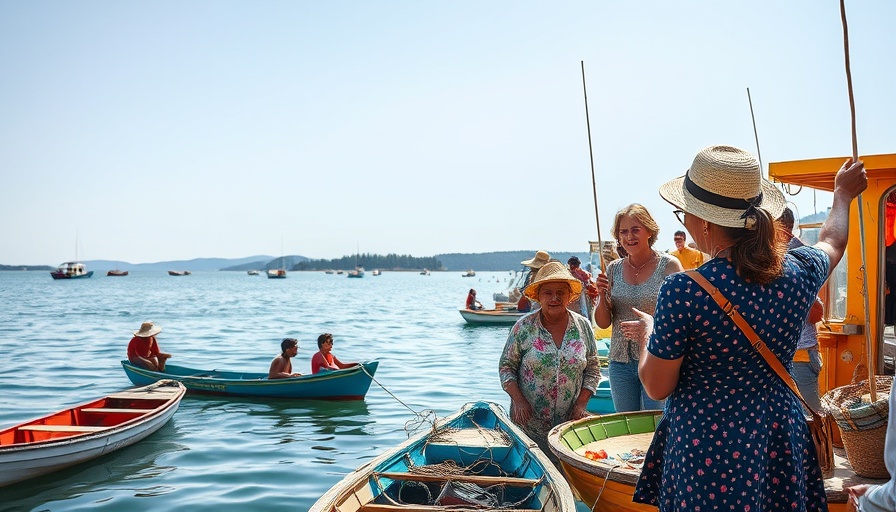
Women Charting Their Own Course: The No Sex for Fish Initiative
In the small fishing community of Nduru Beach, Kenya, a powerful story of resilience unfolds. A group of women known as the No Sex for Fish cooperative took a firm stand against the exploitation they faced from fishermen who demanded sexual favors in exchange for fish. These courageous women, led by chairperson Justine Adhiambo Obura, redefined their realities by acquiring their own fishing boats and hiring men to fish for them, showcasing their commitment to reclaiming their agency.
The Plight of Nduru Beach: A Story of Survival
However, survival in Nduru Beach has become increasingly precarious. Since 2020, the village has faced catastrophic floods that have devastated homes and displaced many residents. This environmental crisis, compounded by existing health challenges, has made the struggle for survival even more daunting. Many of the women in the cooperative are living with HIV, relying on anti-retroviral drugs provided by international aid to maintain their health.
Health at Risk: The Impact of Aid Cuts
The recent aid cutbacks under previous political leadership have heightened anxieties among the group. While U.S. officials assure that drug supplies won't be interrupted, the past modifications to aid raise a red flag for these women, creating a sense of instability. With the potential loss of support services, the importance of local health initiatives and community resilience becomes even more pronounced. For these women, access to vital healthcare is intertwined with their very survival.
Building a New Future: Community Support and Innovations
In response to these challenges, community leaders and health organizations are exploring innovative solutions to bolster health and wellness practices within the village. Initiatives that promote holistic wellness approaches, such as mental health support systems, nutritional education, and community engagement programs, are critical to helping the women navigate these uncertain times.
Lessons from the No Sex for Fish Movement
The No Sex for Fish women represent a larger narrative about empowerment and resilience in the face of adversity. Their journey reminds us that thriving in any community often means addressing not just physical ailments but also mental health and socio-economic factors. By emphasizing community solidarity and exploring innovative health strategies, they can serve as a model for other regions facing similar struggles.
Remembering Our Roots: The Importance of Environmental Awareness
Additionally, the environmental changes impacting Nduru Beach highlight the urgent need for sustainable practices. Community-driven education initiatives focusing on environmental stewardship can empower residents to protect their natural resources and ensure long-term stability in fishing, which remains the backbone of their economy. As they continue to battle the elements and oppressive societal norms, these women showcase the indomitable spirit of human resilience.
Take Action: Support Community Initiatives
As we reflect on the resilience of the No Sex for Fish women, it is essential to support initiatives that advocate for their continued health and well-being. Consider getting involved in programs that promote community health and provide resources to vulnerable populations. Helping them overcome systemic challenges ensures that their inspiring story continues to thrive.
 Add Row
Add Row  Add
Add 




 Add Row
Add Row  Add
Add 

Write A Comment